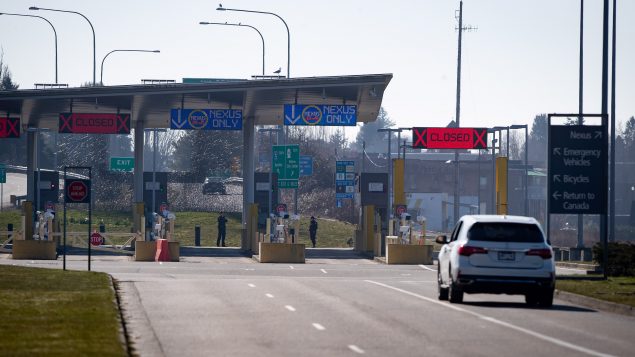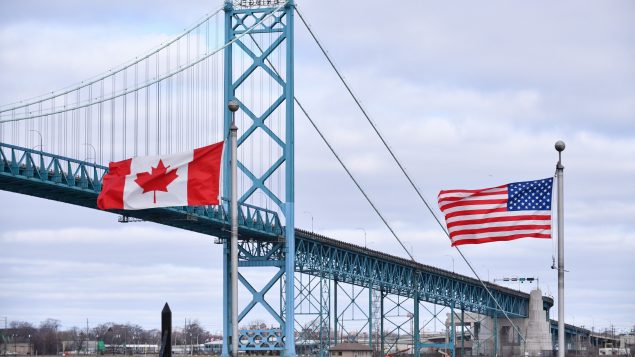The Canada-U.S. border will remain closed for another 30 days, Prime Minister Justin Trudeau announced Tuesday.
Speaking during his daily news conference in Ottawa, Trudeau said both countries have agreed to extend the closure to June 21.
Canada and the U.S. agreed in March to temporarily close the 8,891-kilometre land border to non-essential travel while keeping it open to commercial traffic and essential workers.
That agreement was extended in April by 30 days and it was set to expire on May 21.
“As we’ve seen, the decisions that we’re taking are very much made week-to-week in this crisis, the situation is changing rapidly and we’re adjusting constantly to what is the right measures for Canadians to get that balance right between keeping people safe and restoring a semblance of normality and economic activity that we all rely on,” Trudeau said.
- Canada is in no rush to reopen borders, says Trudeau
- Trump hints at easing restrictions at Canada-U.S. border
The federal government will continue reevaluating the situation as time goes on, Trudeau added.
“It was the right thing to further extend by 30 days our closure of the Canada-U.S. border to travelers other than essential services and goods, but we will continue to watch carefully what’s happening elsewhere in the world and around us as we make decisions on next steps,” Trudeau said.

A British Columbia motorist approaches the U.S. port of entry into Blaine, Wash., at a very quiet Douglas-Peace Arch border crossing, amid concerns about the spread of the coronavirus in Surrey, B.C., on Wednesday, March 18, 2020. The Canada-U.S. border will be closed to non-essential traffic in both directions “by mutual consent,” until at least June 21. (Darryl Dyck/THE CANADIAN PRESS)
Canadian and U.S. officials have given themselves another month to come up with answers about eventually reopening the border to non-essential travel, Trudeau said.
“But even now we know that we need to do more to ensure that travelers who are coming back from overseas or from the United States as Canadians are properly followed up on, are properly isolated and don’t become further vectors for the spread of COVID-19,” Trudeau said.
The federal government is working closely with the provinces and territories to make sure that strong public health measures are in place for people arriving in Canada when non-essential travel picks up again “in the coming months,” Trudeau added.







For reasons beyond our control, and for an undetermined period of time, our comment section is now closed. However, our social networks remain open to your contributions.